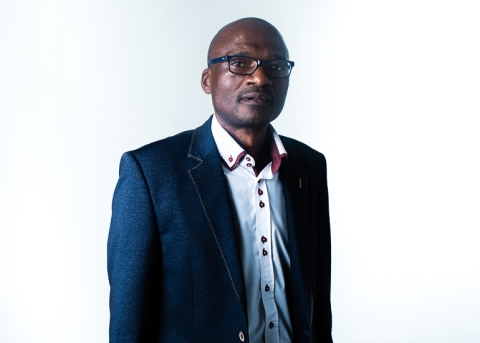

Dr Ottis Mubaiwa
Summary
- Qualifications: BA (Hons) International Development Studies, Master of Research (MRes) in Politics and International Relations, PhD (University of Portsmouth)
- Role Title: Teaching Fellow
- Address: Milldam, Burnaby Road, Portsmouth, Hants PO1 3AS
- Telephone: 023 9284 2213
- Email: ottis.mubaiwa@port.ac.uk
- Department: School of Area Studies, History, Politics and Literature.
- Faculty: Faculty of Humanities and Social Sciences
Biography
I conduct research in the field of international development and have a particular interest in harmful cultural practices such as Bride Price, Female Genital Mutilation and Forced Marriage. My PhD research explored why bride price continues and compared and contrasted how it was observed across three contexts; rural Zimbabwe, urban Harare and in the diaspora of Birmingham. The aim was to ascertain if changes have occurred in how and why it is practiced but also consider if any changes reflect shifts in family structures and the respective roles of married men and women.
There are little documented studies to provide reasons for the continuation of the practice or that seek to understand wider shifts in marriage patterns and gendered expectations. My decision for focusing on bride price was because it represents a vehicle into understanding and exploring changes in patterns of gender relations within family structures and more widely across society. This of course involves looking at the shifting make up of families across the settings of this study as well as probing the ways in which bride price is observed.
Research interests
DISCIPLINE AREAS
- International Development
- Anthropology
- Southern Africa Area Studies
RESEARCH CLUSTERS
- International Development Studies and Security Issues (IDSSC)
- Women’s and Gender Studies
PAST RESEARCH PROJECT(S)
My previous research critically explored the implications that the security discourse has had on the expression of change-agency among Muslim women in relation to Female Genital Mutilation and Forced Marriage in the UK. The project article brought together interviews with a number of Imams based in Pakistani and Somali dominated mosques in Birmingham. It also presented the views of a sample of Muslim men and female Muslim activists.
Research outputs
2025
Female genital mutilation (FGM/C) in Garissa and Isiolo, Kenya: impacts on education and livelihoods in the context of cultural norms and food insecurity
Mubaiwa, O., Chilo, D.
19 Feb 2025, In: Societies. 15, 2, p. 1-13, 13p., 43
Research output: Article
2022
The implications of the securitisation of mosques for transformative masculine attitudes towards harmful cultural practices in the UK
Bradley, T., Mubaiwa, O.
15 Sep 2022,
Research output: Chapter (peer-reviewed)
The gendered impact of COVID-19 on FGM
Mubaiwa, O., Bradley, T., Meme , J.
12 Aug 2022, In: Development in Practice
Research output: Article
2020
The Dynamics of Bride Price in Zimbabwe and the UK Diaspora
Mubaiwa, O.
1 Oct 2020,
Research output: Book
Culture and domestic violence amongst ever-married women in Malawi? An analysis of emotional, sexual, less severe physical and severe physical violence
Chikhungu, L., Bradley, T., Jamali, M., Mubaiwa, O.
6 Apr 2020, In: Journal of Biosocial Science. 53, 2, p. 199-213, 15p.
Research output: Article
